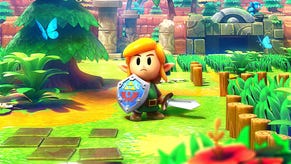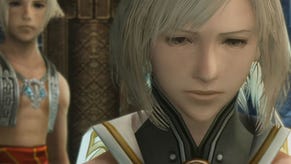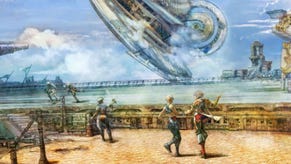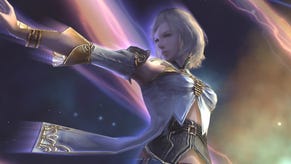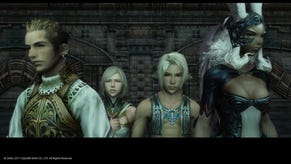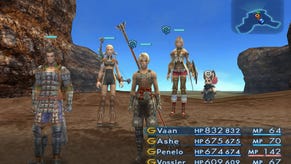A Voice for Ivalice: The Localization and Voice Acting of Final Fantasy XII
Now almost ten years removed, the localization team and voice actors look back on a magnificent work of game translation.
This article first appeared on USgamer, a partner publication of VG247. Some content, such as this article, has been migrated to VG247 for posterity after USgamer's closure - but it has not been edited or further vetted by the VG247 team.
Casting and Recording
As the casting director, what kind of qualities were you looking for in the actors?
JF: Simply, great acting. We wanted a unique take and someone who can fill the bill. Me and Alex and Joe were all talking to each other and collaborating on the casting. We cast a large net, I knew people in Britain, stage actors, and because of the world of FFXII, we looked for people from the UK and cast from there as well.
Alex, you're credited with producing the voice recordings. How involved were you in the casting?
AOS: Joe and I did casting together (he wasn't credited due to a silly Square rule that you can't be credited on more than one thing if you were internal). We sent descriptions to Jack who did casting as well as voice direction, and he sent us options, which we picked from. The team had a final check, and technically had veto power as well, but they never disagreed with our choices.
This isn't exactly a typical video game script, even among Japanese RPGs. How did these recording sessions differ from other games that you've directed and how did you prepare?
JF: It was like actually doing a play, or doing a film script. That's how it differed. The cutscenes were so important to the actual gameplay that it was not something you wanted to use your cheatcode to skip through. As an audience, you needed to watch the scenes, and the scenes were good, the story was really involving. And that's not always true with other games, be they Japanese or Western. These were critically, a classical sort of world we'd set up, very Shakespearean, very Greek. Never dull. The movies were relationship oriented, action oriented, and key to the story. On review, I think they were very well written and well performed, and that's what brings the audience in, and made you want to know what's going on. I think we did a good job putting them together. It was like watching a really good movie!
Gideon Emery (Balthier): As with almost all games, even more so today, script wasn't released ahead of time. All I knew was the character name and a few lines of description. Fortunately, the director is there to guide you in a world they know far more about than the actor. In this case, Jack Fletcher was that person and he was fantastic in filling in backstory and setting and, in this case, helping to make the localization from Japanese to English.
Elijah Alexander (Vayne Solidor): It was my first experience with a video game and the learning curve was straight vertical. It was so much fun to see the animated action and lend my voice to enhancing the life of the character. My prep was similar to playing a role on TV/film or in the theater. They wanted an RP dialect (note: Received Pronunciation LINK: https://en.wikipedia.org/wiki/Received_Pronunciation) and it was one that I was very familiar with at the time. Vayne was a ruling class aristocrat and the producers wanted his arrogance to be pronounced, his sense of invincibility, his cruelty and nonchalance. They were after an easy effortless quality in speech that expressed a sense of confidence and pride.
Were there certain actors that you were gunning for?
AOS/ JR: We would have loved Leonardo Di Caprio for Vaan and Bjork for Fran, but neither of those were going to happen. We did use them as touchstones for the casting process. On a more serious note, we placed a high value on great character actors, like John Dimaggio, who made even small parts like Migelo shine. We also wanted stage actors for the judges to not sound like every other anime/game and real kids for kids.
JF: When Gideon Emery (Balthier) came on our radar, I was gunning for him – perfect for the part. Kari (Wahlgren, Princess Ashe) also, was not someone I was looking for, but when we found her, I thought she was perfect.
GE: I don't know of any open calls for video games. My first audition was through my agent and I think I had a callback for the role with the casting director, where we did some to picture. I actually wasn't familiar with the franchise up to that point, which was probably best, because I didn't give the audition any extra weight or pressure.
In those days, the actor would go in to their voice agent's booth to record. I did a take or two with the in-house engineer and then forgot about it, until I got the call. I was fortunate in that I got to use my own accent, which was a rarity then. These days, I get to use it more often.
[…]I believe I had around 6 recording sessions, which would total around 24 hours of recording time. It felt like much more, actually, as up until that point, I hadn't done more than one session for a specific game.
EA: I was brought in to audition by my voiceover agency Abrams Artists Agency. The audition took about 45 minutes because I auditioned for about nine different characters in a variety of voices. I remember distinctly because my family was visiting and waiting for me in the car. I was cast as Vayne based on my audition and thrilled to be able to be 'the guy to beat' in such a popular game. I did about 4 sessions of recording and the rest is history.
Did the actors ever have the opportunity to be in the booth together or work off of each other in any way?
JF: In games and often in regular animation, you're unfortunately put in a situation where you have to record individually. What we did have was dialogue already recorded the other actors could follow that, but we never did a “cast record.”
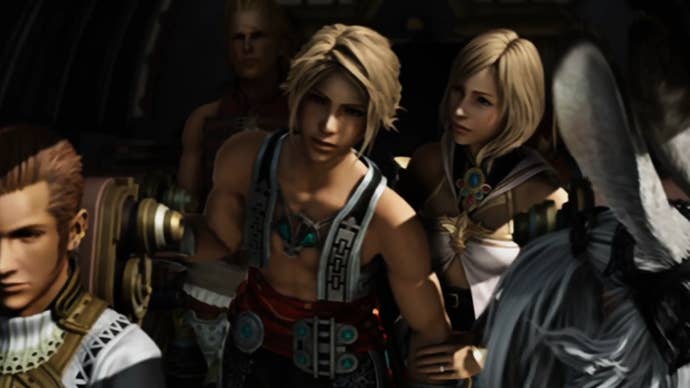
After hearing their performances, were there any instances of actors doing something wildly different than what you had envisioned?
AOS/ JR: Well, no one could have predicted what Dimaggio would do with Migelo, but we knew something great would happen. It's good to note that we were doing this to picture, so there were a lot of constraints. We also picked a good number of people with ADR experience, because we knew they'd be able to handle the tough on-screen tongue calisthenics.
JF: No, with the possible exception of DiMaggio, who is so good he can bring his own thing to roles and still match picture. […] Elijah Alexander (Vayne) and Michael Rodgers (Gabranth) weren't let off the leash, but Elijah especially really did a great job. And Johnny McKeown (Larsa) also didn't go off script, but revealed himself to be a very talented young actor who brought what we were hoping for and then some.
To go along with that, did you change any dialogue on the fly based on the performances?
AOS/ JR: You always change some things as you go, little tweaks and “errors” in performance that end up being better than what was written, so you take those. But there wasn't any wholesale rewriting for characters, due to ADR and time constraints.
Was the translation complete before you started recording dialogue or was it more fluid?
AOS/ JR: Complete, other than a handful of extra scenes that got added mid-project which were translated in hotel rooms or on lunch breaks. The interstitial Ondore parts were some of these extra scenes.
This is a pretty dense script with some challenging dialogue Was it difficult getting the actors on the same page or prepared in any specific way?
JF: No, because I'm a great director and it was great dialogue. (laughs) Seriously, great dialogue is easy to deliver if you hire the right actors. Award-winning British actress Anita Carey nailed the iambic meter in her character's (Venat) lines, as did Bernice Stegers. Fantastic.
We also did ADR recording to picture without the actors seeing the picture for many of the judges, who were largely stage actors from Britain who recorded for us in a studio in the UK with us giving direction over an ISDN line.
AOS: One judge we used a local actor for was Drace, voiced by Julia Fletcher. She knocked it out of the park with an incredible performance, emotional, dramatic, and yet perfectly in sync with the lip flaps.
GE: A lot of work happened in the recording sessions, where much was lip sync to the beautiful Japanese animation. It's a challenge to make one language fit the mouth flaps of a different language and sometimes, phrases just don't play. So we did some tweaking on the day as we found what best fit both character and animation. I happen to love lip sync and also language, so it was an extra component both challenging and enjoyable.
